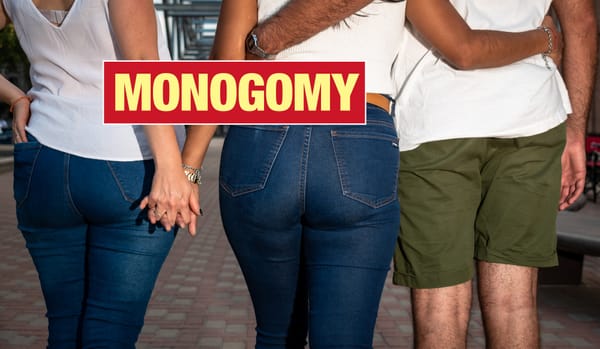Can polyamory’s biggest hater discover the benefits of non-monogamy?
In the name of journalism, writer Chanté Joseph goes on a journey to unpick her biases against polyamory, to unexpected results
In the name of journalism, writer Chanté Joseph goes on a journey to unpick her biases against polyamory, to unexpected results

Words: Chanté Joseph
There is no tangible reason for me to be polyamory's biggest hater.
There is no tangible reason for me to be polyamory's biggest hater. I think I know three people at most in polyamorous relationships. My interactions are mainly online – the worst, most misogynistic guy on Elon's hellsite is harping on about polyamorous relationships – or in pop culture, which also hasn’t been kind to polyamory. Jokes about polyamorous couples being ugly or smelly or memes insisting that there is only one willing party in an open relationship fill my feed and I laugh along. Even when I told my friends I was writing about polyamory, I was met with a swift: “Ew, greedy.”
Cis-het monogamy is a unique form of hell that has brought me no real joy up until now, so why am I so firmly attached to the idea that there is only one way to do relationships?
Unfortunately, it is just the default, uncritical way we talk about non-monogamy. In my experience, cis-het monogamy is a unique form of hell that has brought me no real joy up until now, so why am I so firmly attached to the idea that there is only one way to do relationships? Being a hater is only fun when you’re truly informed, have a holistic view of a topic and can coherently argue your points. Hating without a firm understanding makes you ignorant. I spoke to some of the best voices I could find on ethical non-monogamy to really get to grips with what this is and how I truly feel about it.
As it stands, our cultural default is monogamy. The first recorded marriage I learn from Ruby Rare’s The Non-Monogamy Playbook is recorded in 2350 BCE, long before any of the religious texts we know today existed. This became the base through which we built the foundations of modern society. The monogamous marriage of two people was never designed with love in mind – a more recent invention – but it was an economic exchange, a coming together of resources to continue and fortify a legacy. We soon layered morality, expectation, laws and rituals on top of that to develop mononormativity, a societal bias that renders monogamy as the superior relationship style. Years of this conditioning are bound to give anyone an inherent aversion to anything other than the norm. Still, we’ve overcome so much other social conditioning, so why does this feel different?